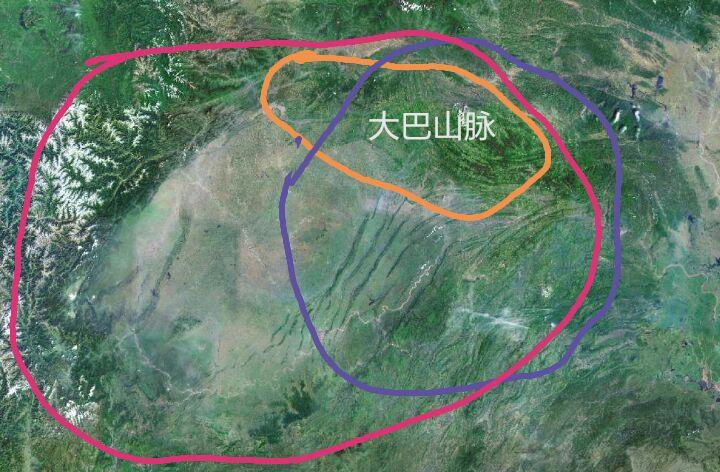Bashan's orientation at different times was different. Today, the direction of Bashan is quite clear, referring to the Daba Mountains. But in ancient times, the term Bashan referred to a fairly wide range, and the scope varied from period to period. In addition, the context is different, and the scope of its pointing is also different.

In the earliest times, Bashan referred to the mountainous area in the ancient Baguo, and its core was the Wushan area. In fact, in ancient times, Bashan and Wushan were mixed in many cases, and these two terms could be substituted for each other. For example, the great tang dynasty poet Li Bai's poem "Jingmen Floating Boat Looking at the Shu River" has "The end of the mountain, swaying Chu Yunxing." In two verses, Bashan here actually refers to the Wushan area. In addition, in the three poems of the great tang dynasty poet Du Fu, "Wen Daoba Mountain, the spring boat is just right." All will be a hundred years old, looking at Jiujiang City. A poem in which Bashan actually refers to the area around Wushan.
In the Han Dynasty, Yizhou was established, and the two places of Ba and Shu were subordinated to the same administrative region. With the passage of time, coupled with the integration of the inhabitants and cultures of Ba and Shu, Bashu became a generic term for the entire Sichuan Basin and its surroundings. Correspondingly, Bashan often refers to the entire Bashu region, and the so-called "Bashan Shushui" is also. This can also be found in the poetic literature of antiquity. In the song Dynasty Lu You's poem "Night Thoughts", there is "Chu Ze is infinitely white, where is the green of Bashan?" In two verses, Bashan here actually refers to the whole of Sichuan. For example, the Tang Dynasty poet Liu Yuxi's poem "Bamboo Branches" has "Chushui Bashan River rains a lot, and the Ba people can sing their own folk songs." In two sentences, bashan here actually refers to the entire Sichuan region.
As for where Bashan refers to in Li Shangyin's poem "Night Rain Sends North", it should be judged in conjunction with the poet's whereabouts. This poem, "Ten Thousand Tang Dynasty Absolute Sentences", is titled "Night Rain Sent Inside", "Inside" is an insider, referring to the wife. This poem was composed by Li Shangyin between July and September of the fifth year of the da junior high school when he was in Zizhou as the shogun of The Dongchuan Festival, to express his longing for his wife. So where is Zizhou? The answer is now Sandai County, Mianyang City, Sichuan Province. It is quite far from today's Daba Mountain or Wushan Mountain, and in ancient times it was not the land of Baguo (Santai County belonged to the State of Qi during the Spring and Autumn Period and the Warring States Period, and did not belong to the two countries of Ba and Shu). Therefore, the Bashan in this poem should refer to the entire Bashu region in general, not to a certain mountain range.